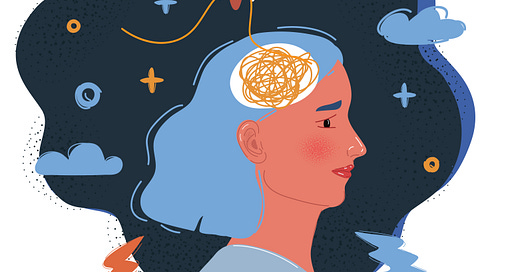Why Most People Lack Self-Awareness
'Until you make the unconscious conscious, it will direct your life and you will call it fate' --Carl Jung
Do you think you are self-aware?
Until about five years ago, I was utterly convinced that this label applied to me.
But really, I was clueless. I mistook being self-critical for self-awareness. This mistake led me to believe that the way I saw myself and the world was completely accurate. This happens when we haven’t brought what’s stored in our unconscious mind into awareness. Until then, we see life through a distorted lens and believe it’s objective reality.
Researchers confirmed in the Harvard Business Review that the majority of us are deluded about ourselves and how others experience us: “Even though most people believe they are self-aware, self-awareness is a truly rare quality: We estimate that only 10–15 percent of the people we studied actually fit the criteria.”1
The authors found that there are two types of self-awareness: internal and external self-awareness:
Internal self-awareness represents how clearly we see our own values, passions, aspirations, [how we] fit with our environment, reactions (including thoughts, feelings, behaviors, strengths, and weaknesses), and impact on others.
External self-awareness means understanding how other people view us in terms of those same factors listed above.
The study found that people with internal self-awareness are “happier and more satisfied with their relationships” and “experience less anxiety, stress, and depression.” Those with external self-awareness “are better at expressing empathy and embracing other people’s perspectives” which usually leads to better relationships, and thus more happiness.





